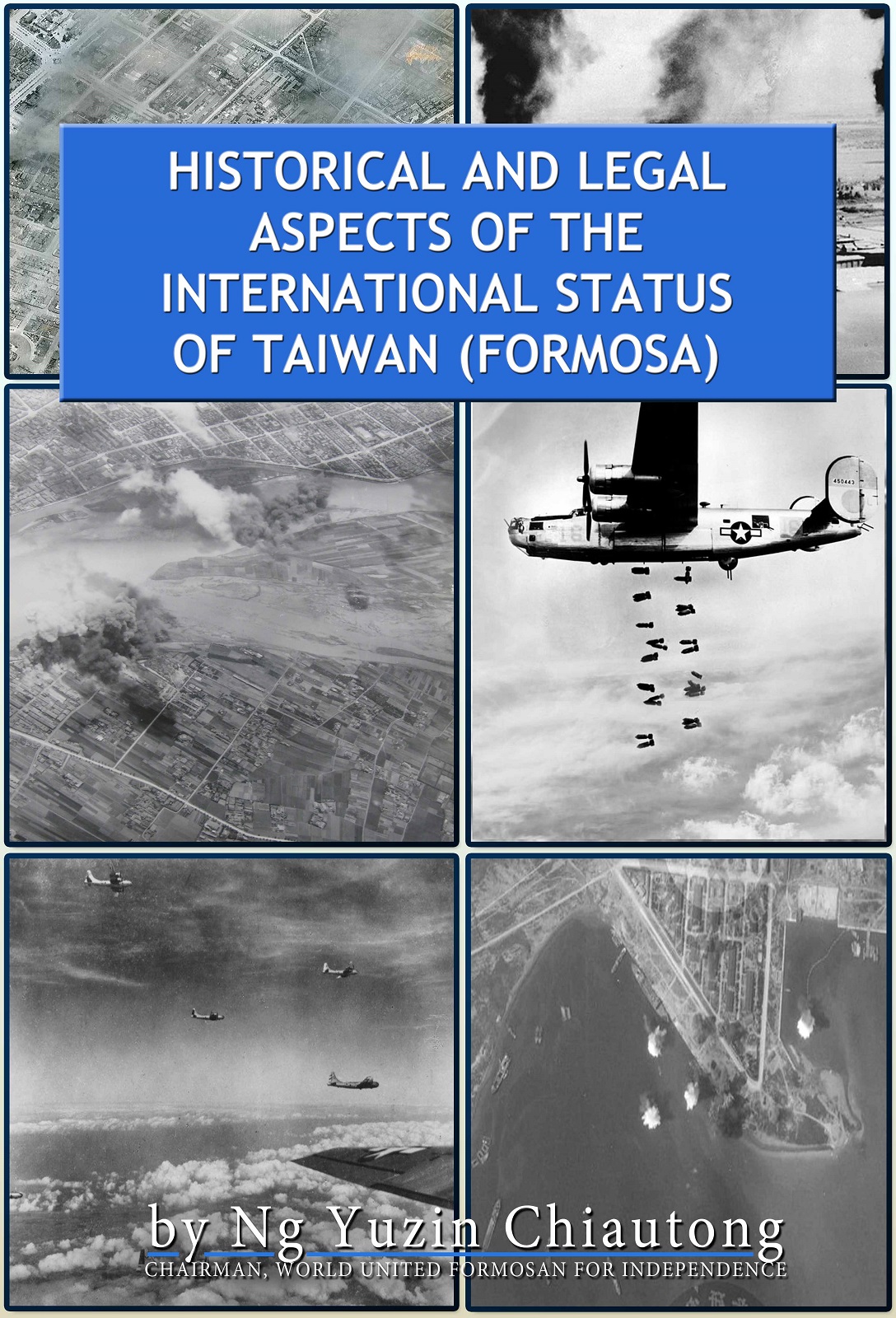excerpt from the book: III. Refutation against PRC and ROC 4. Peace Treaties with Japan --
(3) Article X of the Treaty of Peace between the ROC and Japan stipulates as follows for the nationality of the Taiwanese:
"For the purpose of the present Treaty, the nationals of the Republic of China
shall be deemed to include all the inhabitants and former inhabitants of Taiwan
(Formosa) and Penghu (the Pescadores) and their descendants who are of the Chinese
nationality in accordance with the laws and regulations which have been or may
hereafter be enforced by the Republic of China in Taiwan (Formosa) and Penghu
(the Pescadores).... "
Simply stated, the "nationals of the ROC shall be deemed to include
the Taiwanese." The use of the words "deemed"
calls for attention. This is not an affirmative definition of the Chinese nationality of the Taiwanese people,
but merely an agreement reached for the sake of convenience on the treatment of the Taiwanese as the ROC
nationals. On this point, Mr. Eiji Wajima, Director of the Asian Affairs Bureau, the Japanese Ministry of
Foreign Affairs, told the House of Representatives Standing Committee for Foreign Affairs (May 23, 1952),
in his capacity as government member, that the status of Taiwan remained undefined and that since the
inhabitants of Taiwan who were formerly Japanese nationals lost the Japanese citizenship, and unless
some measure being taken, they were not able to travel to Japan. Therefore, they were "deemed"
to be Chinese nationals.
(Reference: The 13th Japanese National Diet, House of Representatives,
Standing Committee Record, Vol. 4, no. 25, p. 25)
At the same committee on May 30, Mr. Kanichiro Ishihara, Vice Minister of Foreign Affairs, was
more explicit in his answer to a question raised by Mr. Hyakuro Hayashi, a member of the Standing
Committee:
Hyakuro Hayashi: "When it says 'deemed to include', how different is it from
saying 'are nationals' ?"
Ishihara: "The word 'deemed' is used here because the territorial issue has not yet
been brought to a final resolution."
(Reference: The 13th Japanese National Diet, House of Representatives,
Standing Committee Record, Vol. 4, no. 28, p. 7)
(4) In the Treaty of Peace between the ROC and Japan the term "residents" is clearly distinguished from "nationals".
To refer to the Japanese the treaty says "Japanese nationals", but it does not call the Taiwanese "Chinese nationals" but instead, it prefers the term "residents". This shows that the Taiwanese are not "Chinese nationals" but only "deemed" to be such. Article III of the Treaty is illustrative of this point:
"The disposition of property of Japan and of its nationals in Taiwan....,
and their claims, including debts, against the authorities of the Republic
of China in Taiwan and the residents thereof, and the disposition in Japan
of property of such authorities of residents and their claims, including
debts against Japan and its nationals, shall be the subject of special
agreements between the Government of Japan and the Government of the
Republic of China."
Arguments of both Japan and the ROC in the stage of negotiations for the Treaty of Peace between the ROC and Japan have been made clear in the course of deliberations in the Japanese National Diet. The ROC persisted in its demand for clearly identifying Taiwan as its state territory, while Japan refused to comply with the demand.

Note: As a pre-condition for establishing diplomatic ties with the PRC, Japan abrogated the Treaty of Taipei with the Taiwan polity in 1972.
|


